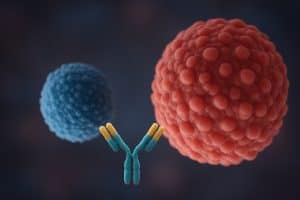
Study boost for personalised cancer treatments
pharmafile | July 23, 2010 | News story | Research and Development | Cancer, genome, genomics, personalised medicine
A five-year study by scientists in the UK and US of the way genomes and cancer medicines interact has yielded its first results.
Cancer Genome Project researchers, based at both Massachusetts General Hospital Cancer Center and the Wellcome Trust Sanger Institute in Cambridge, hope their work will make personalised cancer treatment more successful.
“By producing a carefully curated set of data to serve the cancer research community, we hope to produce a database for improving patient response during cancer treatment,” explains Dr Andy Futreal, UK-based co-leader of the project.
The combination of mutations in a patient’s cancer cells plays a large part in determining his or her response to treatment and the first tranche of data looks at the responses of 350 cancer samples to 18 anticancer therapeutics.
“We will, over the course of this work, add to this picture, identifying genetic changes that can inform clinical decisions, with the hope of improving treatment,” Futreal adds.
Responses will be correlated to the genes driving the cancers, in theory creating a table of the most promising treatments – or combinations – for each of the cancer types based on the specific genetic alterations in these cancers.
Clinicians are already able to identify some genetic factors that determine drug response, but in the main there is not yet sufficient understanding to optimise treatment based on a person’s genome.
The idea of this project is to expose 1,000 cancer cell lines to 400 treatments, alone or in combination, including known drugs as well as others in preclinical development.
“It is very encouraging that we are able to clearly identify drug-gene interactions that are known to have clinical impact at an early stage in the study,” says Dr Ultan McDermott, Wellcome’s faculty investigator.
“It suggests that we will discover many novel interactions even before we have the full complement of cancer cell lines and drugs screened.”
The first results are available on the Genomics of Drug Sensitivity in Cancer website.
Adam Hil
Related Content

Central nervous system cancer metastases – the evolution of diagnostics and treatment
The current forms of immunotherapy, how T cell therapy works and what the future holds

BioMed X and Servier launch Europe’s first XSeed Labs to advance AI-powered antibody design
BioMed X and Servier have announced the launch of Europe’s first XSeed Labs research project, …

T-cell therapy – the evolution of cancer treatments
The current forms of immunotherapy, how T cell therapy works and what the future holds






